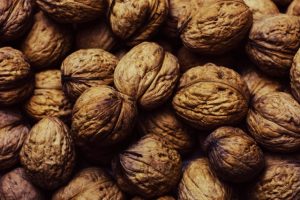7 Foods that Fight Inflammation
With the enormous amount of information thrown at us and incredulous diets going around making all sorts of false claims, what should we eat to get healthy and stay healthy?
What does chronic inflammation do? It leads to all sorts of systemic diseases, including but not limited to cancer. The solution is simple: Stop eating foods that cause inflammation. We’re talking sugars (the number one food source for cancer cells), flours, and processed foods (anything that comes in a box).
It’s time to start making healthy, anti-inflammatory choices. No, you don’t have to become “all vegan,” “all vegetarian,” “paleo,” or whatever name you choose to call it. It boils down to simply eating healthy, non-processed, non-GMO foods that are pasture raised or grass fed and free of pesticides and antibiotics. Throw in a few other foods rich in antioxidants, vitamins, and phytonutrients, and you can be well on your way to total health.
Top 7 Foods that Fight Inflammation
Ginger
Ginger not only calms inflammation but relieves pain and swelling by stimulating the lymphatic system and causing you to sweat out toxins—particularly in lungs, sinus passages, and the colon. It settles the stomach, alleviates nausea, gas, and bloating, and its antibiotic properties fight infection.
Turmeric
The color of turmeric comes from the curcumin, which not only promotes healthy inflammatory responses but is one of the single greatest killers of cancer cells. It can relieve joint pain and swelling for arthritis sufferers and also fires up fat metabolism to reduce gas and bloating.
Brussel Sprouts
Brussel sprouts are loaded with antioxidant disease-fighting glucosinolates, Vitamins C and K, and Omega 3 fatty acids. They help prevent environmental toxic changes to our DNA with a compound that is specific to them and also have alkaline minerals and fiber which regulate blood sugar and cholesterol and combat oxidative damage to cells.
Bok Choy
This Chinese cabbage provides more than 70 phenolic antioxidants, glucosinolates, beta-carotene, Vitamin C, alkaline minerals, folate, B6, Omega-3 fatty acids, and fiber. It also tops the chart in Vitamin K, making it a super star in reducing inflammation, bolstering resistance to infection, combating oxidative damage and supporting healthy muscles, nerves, and bones.
Walnuts
 Walnuts are the highest of all nuts in Omega-3s, and they are loaded with antioxidant phytonutrients, Vitamin E, and folate. They also contain L-arginine, which converts to nitric oxide and relaxes blood vessels and unclogs arteries—offering multiple vascular benefits to people with heart disease, or those who have increased risk for heart disease due to multiple cardiac risk factors. Walnuts contain magnesium that helps regulate blood pressure and cholesterol and are one of the few food sources of melatonin, which calms the nervous system and aids in sleep. Melatonin also delivers neuroprotective properties, making walnuts a super brain food, too. Walnuts contain antioxidants that are so powerful at free-radical scavenging that researchers called them "remarkable," and research has shown that walnut polyphenols may help prevent chemically-induced liver damage.
Walnuts are the highest of all nuts in Omega-3s, and they are loaded with antioxidant phytonutrients, Vitamin E, and folate. They also contain L-arginine, which converts to nitric oxide and relaxes blood vessels and unclogs arteries—offering multiple vascular benefits to people with heart disease, or those who have increased risk for heart disease due to multiple cardiac risk factors. Walnuts contain magnesium that helps regulate blood pressure and cholesterol and are one of the few food sources of melatonin, which calms the nervous system and aids in sleep. Melatonin also delivers neuroprotective properties, making walnuts a super brain food, too. Walnuts contain antioxidants that are so powerful at free-radical scavenging that researchers called them "remarkable," and research has shown that walnut polyphenols may help prevent chemically-induced liver damage.
Collard Greens
Full of fiber, alkalizing chlorophyll, antioxidant glocosinolates, Vitamin K, and Omega-3s, collard greens bind bile acids and banish bacteria to aid in detox and digestion of the gut flora, while helping to oxygenate the blood and enhance circulation and digestive enzyme activity.
Flax
As the king of fatty acids and mucilage fiber, flaxseed a must in everyday food choices. Loaded with Omegs-3s, flax combats inflammation and boosts cellular cleansing and immune response. Flax contains Lignans and phytoestrogens that balance hormones, help to prevent breast and prostate cancer, and ease menopause symptoms. The mucilage in flax drives detox of the gut bacteria.
Incorporating these anti-inflammatory foods into your diet is a great lifestyle modification that can yield positive results for your health and quality of life. Learn more about how nutrition, genetics, and inflammation interact at our 7th Annual Scientific Session.
Sources:
- The truth about cancer: the global quest 2015 by Ty Bollinger
- Organic Spa Magazine Jan-Feb 2017
- ncbi.nlm.nih.gov/pubmed/18494495
- http://www.ncbi.nlm.nih.gov/pubmed/17008073
